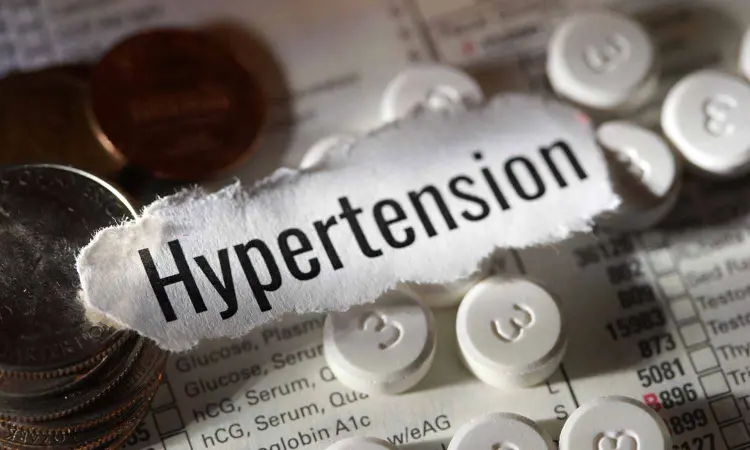- Home
- Medical news & Guidelines
- Anesthesiology
- Cardiology and CTVS
- Critical Care
- Dentistry
- Dermatology
- Diabetes and Endocrinology
- ENT
- Gastroenterology
- Medicine
- Nephrology
- Neurology
- Obstretics-Gynaecology
- Oncology
- Ophthalmology
- Orthopaedics
- Pediatrics-Neonatology
- Psychiatry
- Pulmonology
- Radiology
- Surgery
- Urology
- Laboratory Medicine
- Diet
- Nursing
- Paramedical
- Physiotherapy
- Health news
- Fact Check
- Bone Health Fact Check
- Brain Health Fact Check
- Cancer Related Fact Check
- Child Care Fact Check
- Dental and oral health fact check
- Diabetes and metabolic health fact check
- Diet and Nutrition Fact Check
- Eye and ENT Care Fact Check
- Fitness fact check
- Gut health fact check
- Heart health fact check
- Kidney health fact check
- Medical education fact check
- Men's health fact check
- Respiratory fact check
- Skin and hair care fact check
- Vaccine and Immunization fact check
- Women's health fact check
- AYUSH
- State News
- Andaman and Nicobar Islands
- Andhra Pradesh
- Arunachal Pradesh
- Assam
- Bihar
- Chandigarh
- Chattisgarh
- Dadra and Nagar Haveli
- Daman and Diu
- Delhi
- Goa
- Gujarat
- Haryana
- Himachal Pradesh
- Jammu & Kashmir
- Jharkhand
- Karnataka
- Kerala
- Ladakh
- Lakshadweep
- Madhya Pradesh
- Maharashtra
- Manipur
- Meghalaya
- Mizoram
- Nagaland
- Odisha
- Puducherry
- Punjab
- Rajasthan
- Sikkim
- Tamil Nadu
- Telangana
- Tripura
- Uttar Pradesh
- Uttrakhand
- West Bengal
- Medical Education
- Industry
Renalase, dopamine and norepinephrine biomarkers for hypertension development in CKD Patients: Study

A recent study published in BMC Nephrology found early diagnosis and risk assessment through renalase, dopamine, and norepinephrine underlying chronic kidney disease (CKD) and its strong link to arterial hypertension (HT).
CKD affects millions globally and often leads to irreversible kidney damage. More than 90% of individuals with CKD develop HT, which is a major risk factor for cardiovascular events. The study included 117 patients across varying stages and treatment types of CKD, and examined how levels of renalase, dopamine, and norepinephrine differ in relation to disease severity and comorbid conditions such as diabetes and hypertension.
The participants were categorized into 4 patient groups into those undergoing hemodialysis (both before and after sessions), individuals receiving peritoneal dialysis, kidney transplant recipients (pre- and post-operation), and conservatively managed patients at stages 2 to 5 of CKD. A control group of 31 healthy individuals was also included for baseline comparison. All biochemical measurements were conducted using the enzyme-linked immunosorbent assay (ELISA) method.
The results of this study highlighted significant differences in the levels of these three biomarkers among the CKD patient groups when compared to the healthy control group. Renalase, known for its role in degrading catecholamines and regulating blood pressure, showed notably decreased levels in patients suffering from autosomal dominant polycystic kidney disease (ADPKD) accompanied by hypertension. This points to a potential role of renalase deficiency in exacerbating hypertensive outcomes in CKD patients.
Dopamine, which helps regulate renal blood flow and sodium balance, showed the highest levels in patients whose CKD was caused by glomerulonephritis. This could suggest a compensatory mechanism or indicate different pathophysiological trajectories in glomerular-based kidney disease.
Norepinephrine, associated with the body’s stress response and sympathetic nervous system activation, was lowest in patients who had both hypertension and diabetes, which accelerates kidney damage. This depletion may reflect an exhausted adrenergic system in these high-risk patients.
The study illuminates the potential of these biomarkers in not only monitoring CKD progression but also in predicting the onset of cardiovascular complications and creating patient-specific treatment strategies. The ability to stratify risk based on biochemical profiles could revolutionize how CKD and HT are managed, particularly in resource-limited settings where early detection is critical.
Overall, renalase, dopamine, and norepinephrine could soon become essential components of routine diagnostic panels, in guiding nephrologists for early intervention and improving long-term outcomes for CKD patients worldwide.
Source:
Heryć, R., Cecerska-Heryć, E., Serwin, N., Stodolak, P., Goszka, M., Polikowska, A., Ciechanowski, K., & Wiśniewska, M. (2025). Renalase, dopamine, and norepinephrine as markers for the development of hypertension in CKD patients. BMC Nephrology, 26(1), 200. https://doi.org/10.1186/s12882-025-04114-2
Neuroscience Masters graduate
Jacinthlyn Sylvia, a Neuroscience Master's graduate from Chennai has worked extensively in deciphering the neurobiology of cognition and motor control in aging. She also has spread-out exposure to Neurosurgery from her Bachelor’s. She is currently involved in active Neuro-Oncology research. She is an upcoming neuroscientist with a fiery passion for writing. Her news cover at Medical Dialogues feature recent discoveries and updates from the healthcare and biomedical research fields. She can be reached at editorial@medicaldialogues.in
Dr Kamal Kant Kohli-MBBS, DTCD- a chest specialist with more than 30 years of practice and a flair for writing clinical articles, Dr Kamal Kant Kohli joined Medical Dialogues as a Chief Editor of Medical News. Besides writing articles, as an editor, he proofreads and verifies all the medical content published on Medical Dialogues including those coming from journals, studies,medical conferences,guidelines etc. Email: drkohli@medicaldialogues.in. Contact no. 011-43720751


